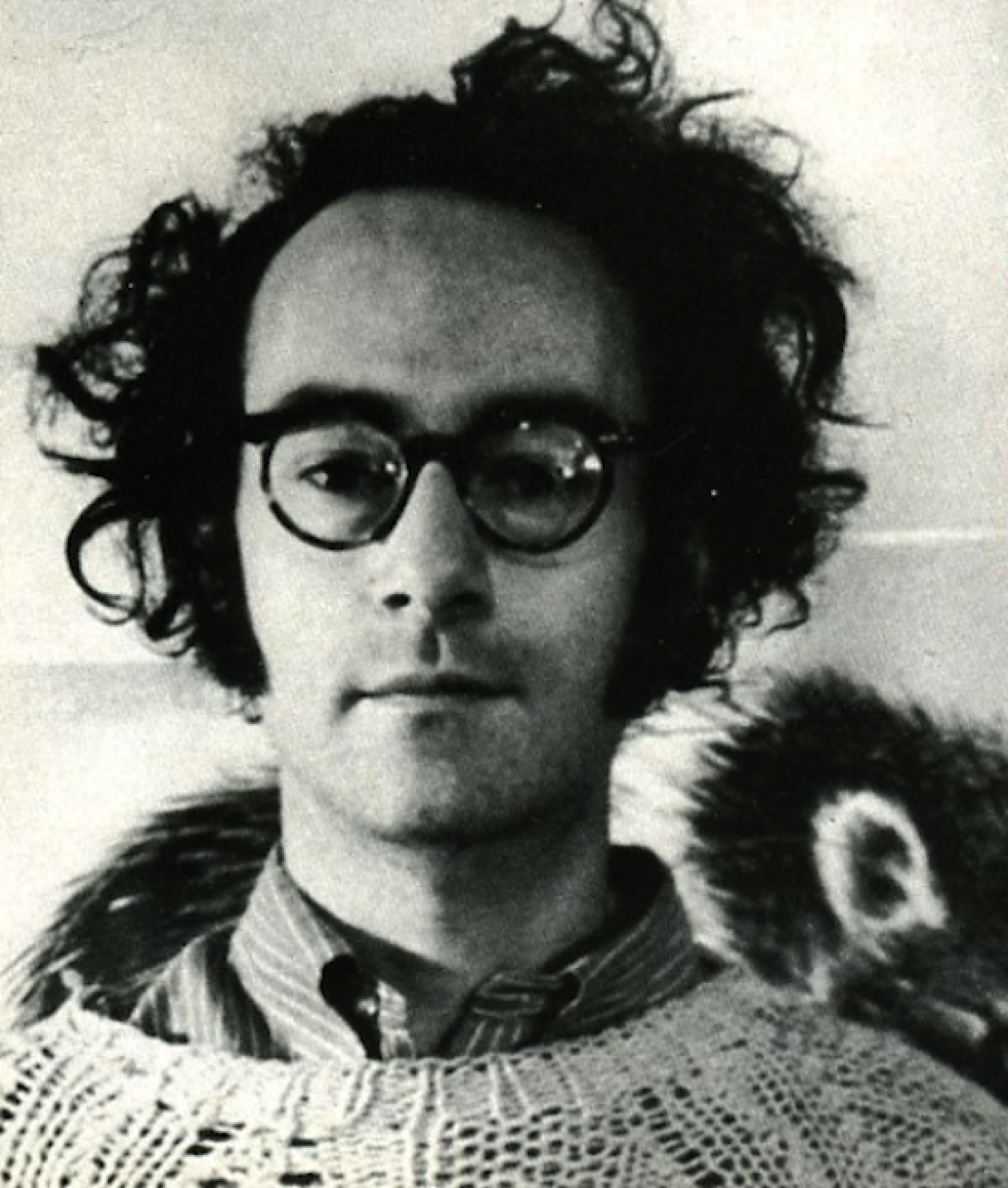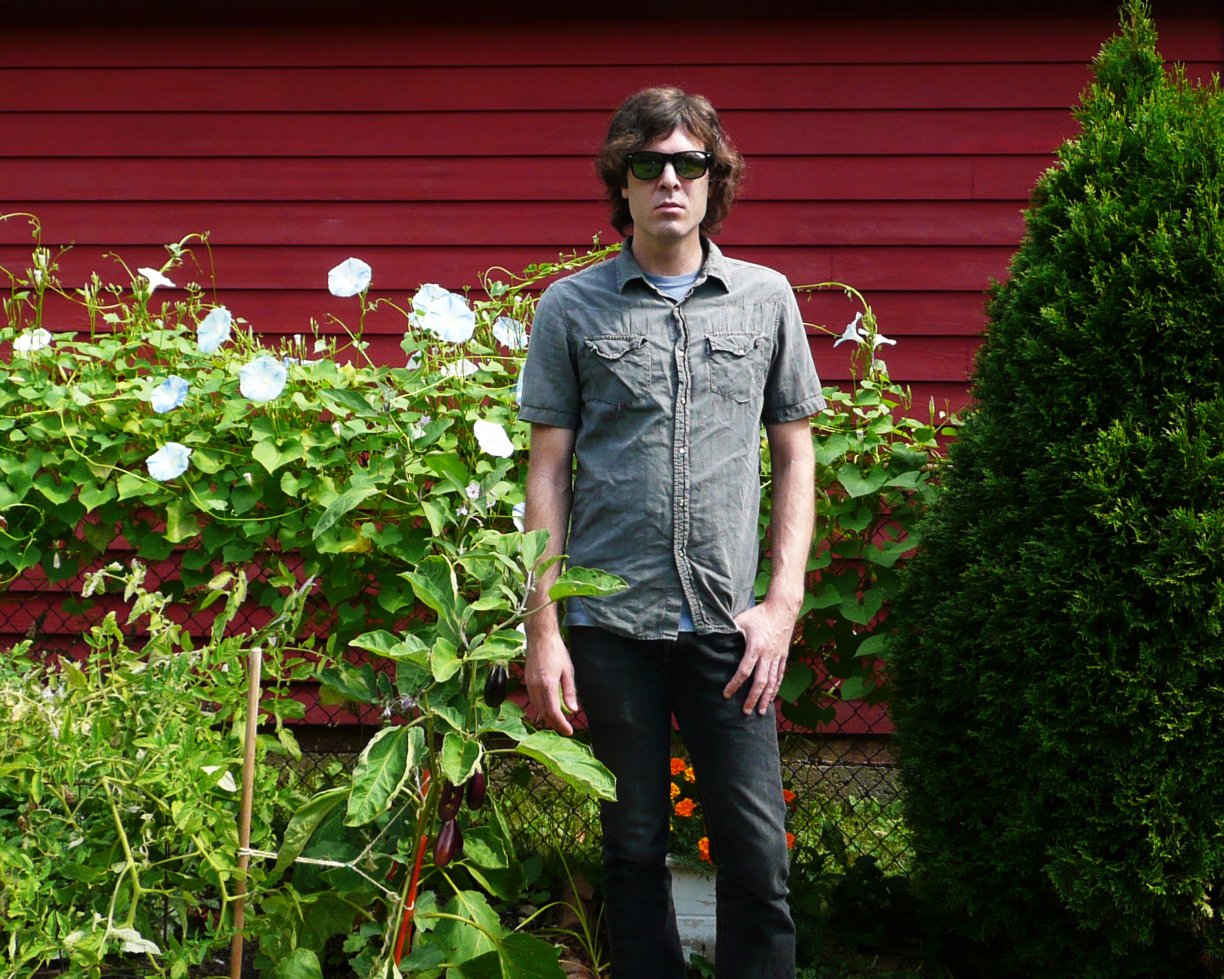Tectonics Festival New York 2015 continues in its second night at Abrons Art Center in lower Manhattan. The program turns its attention to composer and multimedia artist David Behrman, a seminal New York figure and co-founder of the Sonic Arts Union, active since the 1960s. Behrman performs his now-classic 1966 composition Wave Train, exploring resonant characteristics of a grand piano with feedback, and presents an ensemble work, Long Throw (2007-), joined by performers Maya Dunietz, Joseph Kubera, and James Rushford. A solo piece by John McGuire, known for his “postminimalist” synthesis of minimalism and serialism, is performed by soprano Beth Griffith, for whom it was composed from 1990-97. Acclaimed pianist Joseph Kubera presents a solo program including works by Julius Eastman, an underlooked but key figure from the first generation of minimalist composers, as well as the Canadian composers Chiyoko Szlavnics, whose compositions form from line-drawings, and Barbara Monk Feldman, a former student and widow of Morton Feldman. James Rushford and Klaus Lang return for a first-time duo performance, commissioned for Tectonics Festival NY.
Tectonics Festival includes performances May 7th at First Unitarian Congregational Society, Brooklyn, and May 8th and 9th at Abrons Art Center. Founded in 2012 by conductor Ilan Volkov, Tectonics provides a rare forum for the critical consideration of new developments in contemporary composition, with explorations of improvisation, interdisciplinary collaboration, and experimental performance practice from an international array of emerging and established composers.
Program
John McGuire: A Cappella (1990–97)
Performed by Beth Griffith (soprano).
James Rushford & Klaus Lang
First-time duo performance. Commissioned for Tectonics Festival NY, co-commissioned by the Austrian Cultural Forum.
Julius Eastman: Piano 2 (Sonata in 3 movements) (1986)
Chiyoko Szlavnics: Constellations I-III (2011)
Barbara Monk Feldman: The I and Thou (1988)
Performed by Joseph Kubera (piano).
David Behrman: Long Throw (2007-)
Performed by David Behrman (laptop), Maya Dunietz (flute), Joseph Kubera (piano), and James Rushford (viola).
David Behrman: Wavetrain (1969)
Performed by David Behrman, Maya Dunietz, Joseph Kubera.
John McGuire (b. 1942) is an American composer, pianist, organist, and music editor. His composition gradually evolved into a search for a synthesis of the minimalism that had appeared in his native California in the 1960s, and the generalized serialism with which he had become acquainted during his studies in Germany, principally with Stockhausen. His work has explored the the fusion of elemental tonal functions with chromatic time structures. His music has been performed at Gaudeamus Music Week, the ISCM festivals in Paris, Amsterdam and Aarhus, the Darmstadt Summer Courses, Festival Musica in Strasbourg, the ICA London, the Cologne Triennial, the West German Radio's Musik der Zeit (six times), the Zagreb Biennial, Festival d'Automne, Paris, the Logos Foundation, Gent, the Holland Festival, Klang-Aktionen, Munich, Pro Musica Nova, Bremen and the Bochum Planetarium; it was the focal point of the Winter Music in Karlsruhe in 1985 and of the Minimalisms Festival of the Berliner Gesellschaft für Neue Musik in 1998.
Beth Griffith is an internationally acclaimed American soprano. Griffith has appeared with ensembles Sequentia, Musikfabrik, Ensemble13, L'Art pour L'Art, Cologne Radio Symphony Orchestra, and the Paris Nouvel Orchestra Philharmonique and has worked with composers John Cage, Morton Feldman, Mauricio Kagel and Karlheinz Stockhausen. Since her European debut in Mauricio Kagel's solo theater piece Phonophonie in 1978, she has appeared at festivals including Warsaw Autumn, Cologne Triennale, Wien Modern, Numus Festival, RIAC, Donaueschingen Musiktage, Darmstadt Summer Courses,Wittener Tage fur Neue Kammermusik, ISCM and New Music America.
James Rushford (b. 1985) is a Los Angeles-based Australian composer, keyboardist, violist and improviser. His work is drawn from a familiarity with specific concrète, improvised, avant-garde and collagist languages. He has been commissioned by ensembles including BBC Scottish Symphony, Melbourne Symphony Orchestra, Ensemble Neon and has had work featured in the Melbourne International Arts Festival, Ultima Festival, Unsound Festival NY, and Tectonics Festival (Scotland), among others. Collaborators include Oren Ambarchi, Kassel Jaeger, Jon Rose, Golden Fur, Ned Collette, Graham Lambkin, Sophia Brous, Crys Cole, and Joe Talia.
Klaus Lang (b. 1971) is an Austrian composer, concert organist, and lecturer. Lang’s compositions span from solo works through chamber music pieces to orchestral compositions, with a special focus on opera (e.g., königin ök, die perser., fichten., BUCH ASCHE.). His opera Die Architektur des Regens (The Architecture of Rain) which is based on the Noh play Shiga by Zeami, was premiered at the Munich Biennale in 2008. In 2006 Lang was appointed Professor of composition at the University of Music and Performing Arts in Graz, Austria. He is the 2010 recipient of Styria’s Andrezj-Dobrowolski-Prize. He has written extensively on music theory.
Julius Eastman (1940-1990) was an African-American composer, pianist, vocalist, and dancer of minimalist tendencies. He was among the first musicians to combine minimalist processes with elements of pop music. As a gay, African-American performer and composer in the 1970s New York contemporary music scene, Eastman broke cultural boundaries onstage and off. He often gave his pieces titles with provocative political intent, such as his seminal trilogy four-piano works, "Crazy Nigger," "Evil Nigger," and "Gay Guerrilla." Eastman premiered his own compositions and worked with classical, jazz, and diverse new music artists including John Cage, Meredith Monk, Arthur Russell, Lukas Foss, and many others. His extraordinary artistic vision and performance skill as singer and instrumentalist made him a singular and significant figure in minimalist and postmodern music.
Chiyoko Szlavnics (b. 1967) is a Canadian composer and visual artist based in Berlin, Germany, since 1998. She studied music at University of Toronto, and composition with James Tenney. In 1997, she attended a residency at the Akademie Schloß Solitude in Stuttgart, Germany, after which she moved to Berlin. Szlavnics has composed for a wide variety of instruments and ensembles, ranging from solos to orchestral works, and created numerous sinewave concert/installations. Her compositions are often based on line drawings, which have been frequently exhibited in Europe and North America.
Barbara Monk Feldman (b. 1953) is a Canadian composer of mostly chamber and piano works that have been performed in Asia, Europe and North America. She received a Master in Music at McGill University in Montreal, a Ph.D. in Music at the State University of New York at Buffalo, where she studied with Morton Feldman, to whom she was married in 1987. She has been a guest lecturer for performances of her music at the Ferienkürse für Neue Musik, Darmstadt 1988-94, and has lectured at universities in the United States and Canada. Her article “Music and the Picture Plane” has been published in res 32 (1997) and in Contemporary Music Review, (1998). Her compositions have been performed at festivals in Europe, Japan and North America, including the Festival Nieuwe Muziek (Middelburg), the Other Minds Festival (San Francisco), and MaerzMusik (Berlin), and have been recorded for radio by BBC London, BRT Brussels, CBC Montreal, HR Frankfurt and WDR Cologne. Her scores are available at Frog Peak Music and The Canadian Music Centre.
Joseph Kubera (b. 1959) is an American pianist known as a leading interpreter of contemporary music for the past three decades. He has been a soloist at festivals including the Warsaw Autumn, Berlin Inventionen and Prague Spring, and has worked closely with legendary composers as John Cage, Morton Feldman, La Monte Young, and Robert Ashley. He toured widely with the Cunningham Dance Company at Cage’s invitation in the 1970s and 1980s. Among the composers who have written works for him are Michael Byron, Anthony Coleman, David First, Alvin Lucier, Roscoe Mitchell, and “Blue” Gene Tyranny. Mr. Kubera has been awarded grants by the National Endowment for the Arts and the Foundation for Contemporary Performance Arts. Kubera is a core member of S.E.M. Ensemble, the DownTown Ensemble and Ostravska Banda, and has performed with a wide range of New York ensembles ranging from Steve Reich and Musicians to the Brooklyn Philharmonic. His recordings are released on Wergo, Albany, New Albion, New World, Lovely Music, O.O. Discs, Mutable Music, Cold Blue, and Opus One.
David Behrman (b. 1937) is a New York-based composer and artist active since the 1960s. Over the years he has made sound and multimedia installations for gallery spaces as well as musical compositions for performance in concerts. Most of his pieces feature flexible structures and the use of technology in personal ways; compositions rely on interactive real-time relationships with imaginative performers. Together with Robert Ashley, Alvin Lucier and Gordon Mumma, Behrman founded the Sonic Arts Union in 1966. He had a long association with the Merce Cunningham Dance Company as composer and performer, created music for several of the Company's repertory pieces, and was a member of the Company's Music Committee during its last years. Behrman has received grants from the NEA, NYSCA, NYFA, the Japan-United States Friendship Commission, the D.A.A.D., the Foundation for Contemporary Arts and the Henry Cowell Foundation. He has been a member of the faculty at the Avery Graduate Program in the Arts at Bard College since 1998. Audio recordings of his works are on the XI, Lovely Music, Pogus, New World, and WERGO labels.
“In Wave Train David Behrman explores the resonant characteristics of a grand piano with feedback. Guitar microphones are placed in various locations on the strings of the piano; then the gains on the mikes’ amplifiers are raised to the point of feedback, exciting the strings. The performer’s job is to ride the feedback, raising and lowering the volume levels, creating arcs of sound waves. David likens this activity to surfing where one is constantly monitoring one’s position along a surging wave front. From time to time, the mikes are repositioned (when the gains are down) to explore different parts of the piano.” — Alvin Lucier




